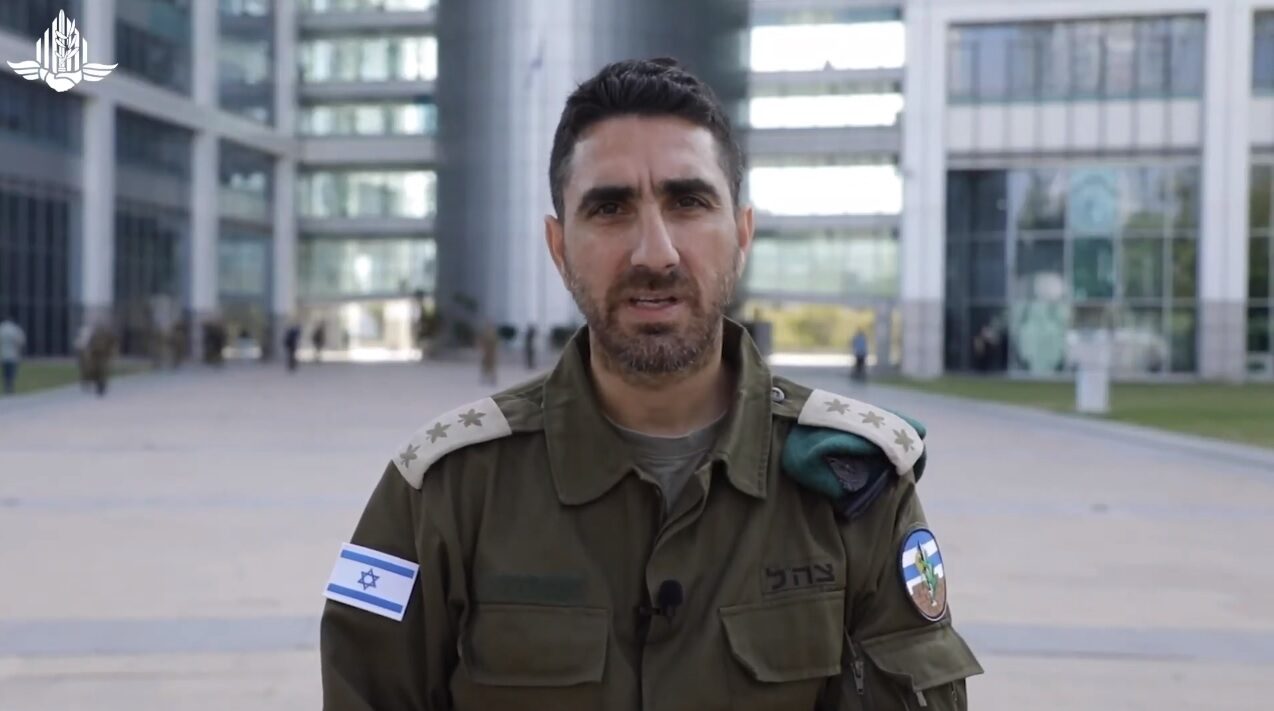COGAT: Israel Can Increase Aid to Gaza, but UN Logistics Stand in the Way
As the war enters its 70th day, the UN has not yet brought in enough personnel and trucks to support the massive logistical operation.
Behind the influx of humanitarian aid into Gaza lies a massive logistical operation managed by the Coordinator of Government Activities in the Territories (COGAT), the Israeli government body responsible for Palestinian civil affairs. Col. Elad Goren, head of COGAT’s Civil Department, outlined the process and the challenges associated with it during a briefing in his office on Wednesday.
International leaders’ calls for Israel to allow more humanitarian aid into Gaza prompted Goren to clarify that Israel is not the limiting factor in the flow of aid. “We do not limit the number of trucks; the UN has to tell us how many [trucks] it wants to receive, and we will adapt ourselves,” he told The Media Line.
The process of bringing aid to Gaza is complicated. Supplies sent from various countries first arrive at El Arish port in Egypt. They are then brought to the Israeli border, where the Israeli military checks the goods to ensure they contain only humanitarian aid. These checks had originally taken place only at Nitzana crossing; the Kerem Shalom crossing was recently opened for these checks as well in order to increase efficiency. After clearance, aid trucks proceed to the Rafah crossing between Egypt and Gaza. Once in Gaza, the United Nations takes charge of receiving and distributing the goods.
Goren said that the situation in southern Gaza had stabilized over the past three or four days, with the UN currently distributing aid from over 100 trucks daily. Israel is capable of checking between 400 and 450 trucks, Goren continued, but the UN and other organizations in Gaza are not capable of receiving and distributing aid on that scale.
On Tuesday, Israel approved and sent 200 trucks to Rafah, but only 107 were received by organizations in Gaza. Goren highlighted the joint aid effort involving Israel, the US, Egypt, and the UN, emphasizing the need for the UN to improve the system’s logistics.
“The problem is not on how much Israel allows. The problem is how much they [the UN] succeed to receive and distribute,” he reiterated.
Goren criticized the UN as a whole along with UNRWA, the UN agency for Palestinian refugees, for not adequately adapting to provide widespread humanitarian assistance more than two months into the war. He pointed out a line of trucks in Rafah on the Egyptian side waiting to enter UN reception, criticizing the UN’s insufficient personnel and equipment.
Goren cited other limitations, such as the capacity of the El Arish port and delays in Egypt’s opening of the Rafah crossing.
“At the end of the day, the UN is not executing the needed logistics to receive the trucks and distribute,” Goren said. He added that the UN has not increased its operating capacity despite the huge influx in need.
In addition to internal daily meetings, a humanitarian team in the COGAT unit conducts detailed joint assessments with international organizations. A coordination cell at the Tarqumiyah checkpoint in the West Bank operates 24/7, addressing problems that emerge and connecting international organizations with the Gazan private sector to promote efficiency and widen the UN’s capacity.
“If UNRWA says that it does not have enough trucks, we connect them with businesspeople inside the strip,” Goren said as an example.
“We are pushing them constantly, both the Egyptians to open the Rafah crossing on time and the UN to collect the goods,” he added.
A security official who asked to remain anonymous said that the inadequate humanitarian response might be part of an agenda to “create a distress situation” that would force Israel to end its operation in Gaza.
Before the Israeli military resumed operations in Gaza after the temporary cease-fire, Israeli officials met with UN representatives to discuss a humanitarian route for aid distribution as well as shelter for Gazans fleeing active fighting. That route was communicated to the military so that it knows not to target those areas.
Goren showed the press a map of the humanitarian route. “All the shelters are on our system to make sure that the population has a place to go,” he said.


